#asperger film
Explore tagged Tumblr posts
Text
Mary and Max. (2009), Adam Elliot

Disabled
Summary: Two lonely souls find the connection of a lifetime, their friendship growing through the exchange of heartfelt letters shared across the Atlantic for 20 years in Adam Elliot’s directorial debut.
youtube
Full Review: The isolation enforced by the COVID-19 pandemic brought to the forefront a growing problem facing today’s population: the burden of loneliness. As social creatures, throughout the course of our evolution, it's been recognized that we have an innate desire to connect with others. Even for the most introverted of us, forming meaningful connections with a select few enhances our quality of life (and those select few can come as fellow humans, or four-legged furries).
The difficulty of making and sustaining said connections is a challenge not to be dismissed, and one that is taking a growing toll on our mental and physical health, with Americans, in particular, reporting heightened rates of isolation even prior to COVID-19 pandemic.
Some of the culprits? Many scientists debate whether technology helps or hinders communication, and there is no secret about the impact of modern-day technology on the social anxiety and self-esteem of those who engage with it, which can hamper the development and maintenance of interpersonal relationships. But the roots of this conversation extend back further than we often think about, and similar conversations took place in the 1960s and 70s with the integration of the television set into a growing number of households, as well as the introduction of fast food as a more commonplace feature of weekly dinnertime routines out of convenience. What was argued to be a “less social�� family structure (the replacement of the dinnertime around the circular table ritual), was proposed as a trigger for what would result in children who would become less social, and who would fail in forming stable relationships of their own.
Here in the 70s, is where Mary and Max. begins, on opposite sides of the world with two characters who embody both isolation and domestic instability in their own right. In Australia, the eight-year-old Mary Daisy Dinkle (voiced by Toni Collette) is a bullied youngster who lives with her alcoholic, kleptomaniac mother, and her emotionally-absent father. The closest person she has to a friend is her agoraphobic double-amputee neighbor, who she communicates with across the street via waves in the window and her pet rooster and as she wistfully spends her days drinking her favorite food, sweetened condensed milk, and gazing after her crush, Damien Papadoupolis (voiced by Eric Bana).
One day while at the post office, Mary does what many children in the era of thoughtful penmanship, seeking random encounters of a time-forgotten kind have done: she picks a name out of a phone book, pondering what the lives of Americans must be like. It's a chance act, a name that could have been anyone, and it happens to belong to one Max Jerry Horowitz (the late Philip Seymour Hoffman).
Dwelling in New York City, Max is a 44-year-old who has lived a life working odd jobs, seemingly moving from one thing to the next as life takes him. He is overweight, attending Overeaters Anonymous meetings at the behest of his psychiatrist, yet displays a degree of comfort with himself and his body despite every signal from society telling him he shouldn’t. These meetings are a discomfort to him, not due to the fact that he has no desire to lose weight, but due to the sexual harassment he endures from a fellow attendee and his inability to communicate his displeasure at her advances (more on this later).
When Max receives Mary’s first few letters, they send him into full-scale panic attacks due to the gravitas of her curiosity and the scale of her questions. Eventually, however, the two form a friendship and discover they share the same love of chocolates, the Noblets (a Smurfs-like television show), and an understanding of one another's loneliness.
The pair build a friendship that stands the test of time: Max’s meltdowns, Mary’s ascent through puberty, the death of her parents, and his own winning the lottery. It's a beautiful reminder of a time in which we could envision innocence in such an encounter, rather than assuming the worst.
In 2023, it’s clear from the outset that Max is neurodivergent. The description of the film is quick to point out his characterization as a man living with Asperger’s Syndrome, yet even millennials can remember that there was a time in which awareness of Autism Spectrum disorders wasn’t as commonly talked about, and those displaying neurodivergent qualities were often written off as “quirky” at best, or stereotyped as screaming “retards” at worst.
From Max’s inability to fend off the woman at his Overeaters Anonymous meetings who aggressively kisses him to the occasionally inappropriate things he pens to Mary, Max displays hallmark symptoms of difficulties understanding how to relate to others, and the world around him, and struggles to emote.
When Max is diagnosed with Asperger’s, it comes as an aha moment for him in which he finally has an answer for the questions people around him have been demanding for so long. In one of the most poignant speeches in the film, he writes to Mary:
“Dr. Bernard Hazelhof says my brain is defective but one day there will be a cure for my disability. I do not like it when he says this. I do not feel disabled, defective or I need to be cured.
I like being an Aspie. It would be like trying to change the colour of my eyes. There is one thing I wish I could change, however. I wish I could cry properly. I squeeze and squeeze but nothing...comes out.” (Mary & Max. (2009))
Following this, Mary sends him a jar of her own tears which he proclaims to be the best gift he has ever received. While he struggles to cry and emote in the ways neurotypical people do, the warmth that he feels practically emanates through the screen, a display of profound body language resonating through claymation that is a testament to the power of both the animation and power of Eliot’s writing.
Later in the film, the most pivotal moment in their friendship comes when Mary, writing her senior thesis on Asperberger’s Syndrome, uses Max as her test case without his consent and publishes a book to launch her career which she hopes to use as a “cure”. She does not speak to him about this beforehand, somehow forgetting his statement all those years later, and informs him shortly before publishing when she sends him an advance copy of the book which nearly causes him to have a heart attack due to his outrage. He is betrayed by the feeling of being used and the implication that he needs to be cured.
Furiously, Max goes back and forth about writing her an angry letter then finally resides on simply ripping out the “M” key from his typewriter and poignantly sending it to her, before ceasing contact for some time.
In time, they resolve their relationship. As the older of the two, one of the more prominent details in the film is Mary endlessly flounders through the struggles that plague young women and seeks to resolve them by conforming the way society often tells us to: through romantic relationships, though aesthetically “fixing” ourselves, through pouring ourselves into careers or giving birth. Max on the other hand often imparts on her the most simplistic advice that over time, we inevitably learn to be the most effective: love yourself first. These are powerful words, printed on a chalky candy heart that are easily forgotten by Mary, discarded time and time again no matter how many times Max imparts them through various lessons, tales, or forms of advice. Yet throughout the twenty years of their friendship, they work effortlessly to improve his own life, offering him solace in a world that refuses to accept him.
Today, the idea of a 44-year-old man and an eight-year-old girl becoming pen-pals would undoubtedly strike the idea of “grooming” first and foremost in the hearts of many, and one would wonder if the film was realized in 2019 rather than 2009 if it would have been received as beautifully as it had.
Given its time though, Mary and Max. instead captured the reminiscence of an era and the purity of a relationship that instead of ending in horror, represents the types of love we don’t see represented onscreen enough: platonic love, and self-love.
Mary and Max. is a powerful film, one that stands as a beautiful example of representation of neurodivergent folks, as well as an example for young people about a bygone era of life in simpler times. Even now, it wasn’t so long ago that a generation of people now just in their 30s experienced the pleasure of making friends based on calling strangers in phone books, discovering the power of intentional connection, and the freedom that rested in long-form letters and postcards.
Currently, Mary and Max. can be streamed on Tubi, rented via digital platforms like Amazon, Google Play, and YouTube, or you may be able to find a copy at your local library.
Citations:
#thevisibilityarchives#tva#diversity#disability#aspergers#aspec character#neurodiversity#animation#stop motion#films#movie#disability visibility#aspie stuff#neurodivergent#Youtube
3 notes
·
View notes
Text
Contradictions of ADHD
youtube
A Real Challenge for Writers
Oh yeah!
#screenwriting#film#writing#screenplay#script#television#scriptwriting#movie#screenwriter#writer#adhd#adhd problems#actually adhd#adhd brain#adhd things#asd#aspergers#asd brain#autistic#Youtube
1 note
·
View note
Text
Autism at it's best! lol


👋👋👋
#ben affleck#the accountant#benaffleckedit#theaccountantedit#filmtvdaily#filmtvsource#cinemapix#filmsource#mine.#edit: gifs.#film: the accountant.#ridiculously love this movie#autism#autism spectrum disorder#asd#aspergers#on the spectrum
94 notes
·
View notes
Note
I ask this with love - have you ever been diagnosed with autism? I'm waiting on my own assessment appointment and ever since my shrink broughts up I might have it I've been hyper aware of my symptoms, which has led to more increased awareness of Possible symptoms in others and uh. your whole vibe screams neurodivergent and maybe it's "just" the adhd but I was just kinda curious if you've ever considered ASD as a possibility for you?
RAADS-R
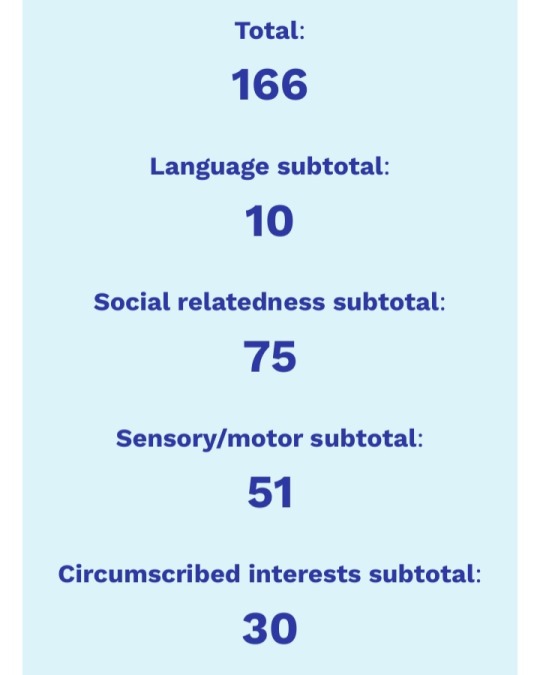
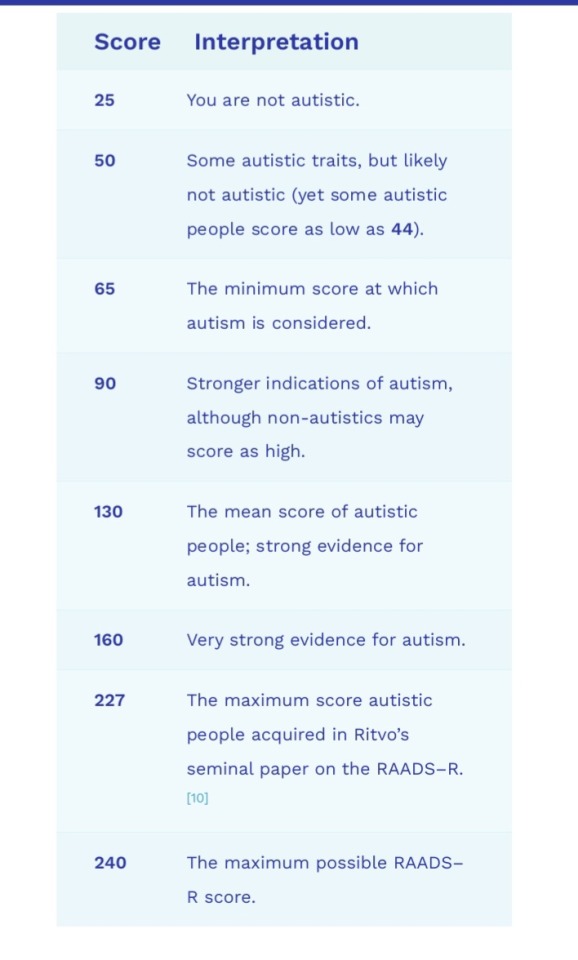
AQ


CAT-Q
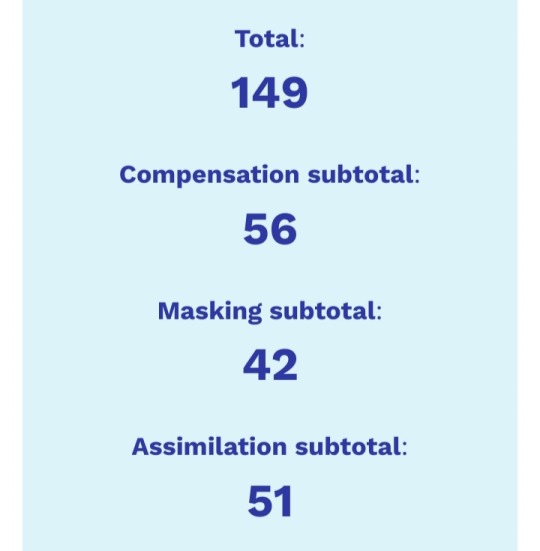

I'm like. Fairly certain I'm autistic, largely because of the sheer number of irl autistic friends i have who thought I might be autistic long before i considered that possibility.
My sister is autistic (she was diagnosed with Aspergers in the 90s but does not consider that an autism diagnosis, i think that she is incorrect) and I'm pretty convinced that my dad, uncle, and grandfather are/were autistic. (My dad has an ongoing blog about movies that he saw in theaters with my mom because if you ask him "when did you first see Tombstone?" Or "who did you go see Die Hard with?" Or "what theater did you see Shrek 2 in for the 2nd time?" He will be able to tell you where he saw the movie, what time of day he went, who was with him, what their opinion of the movie was, whether that was his opinion of the movie, where else he may have seen the movie while it was in theaters, and which physical media he owned or owns the movie on - he has an enormous laserdisc and dvd collection. The blog about going to the movies with her is basically a memoir about their relationship through the lens of his fixation on film. It is one of four movie blogs he runs. That's one example, all of those guys are like that.)
But I'm in a place where I'm concerned that a formal diagnosis might cause more problems than it would solve (large Bastard and i are considering fostering or adopting kids at some point and I know a diagnosis can impact the possibility of getting approved for that, which is shitty) so I'm not sure that following up on that is a good idea.
372 notes
·
View notes
Text
I've read a lot of theories pointing out that Skully might have grown in an isolated, religious-like community. But I don't think that's the case. Allow me to elaborate:
TW: Spoilers/ long post/ just me analyzing Skully
It's sort of a cliché for Tim Burton films that the main character is a hermit of some sorts. Someone who is not adapted to the society or social conventions and usually lived by themselves or basically under a rock.
A few examples could be: Barnabas Collins in Dark Shadows, Willy Wonka in Charlie and the Chocolate Factory (and Charlie himself), Edward Scissorhands, Jack Skellington and of course Vincent Malloy.
So my hypothesis so far:
>Skully is not only based on Jack Skellington's appearance, but also in Tim Burton's characters archetype:
Skully had a hard time adapting to the enviroment he presumably lived in and presented difficulties with bonding and forming relationships with others his age. At first i was inclined to believe he could be on the spectrum (autism or asperger) and I don't really discard that possibility yet, but I don't think his social difficulties are entirely caused by autism. I think he is visibly different from others in opinions and behaviors and that's why he's labeled as "the weird kid". And "the weird kid" is not always autistic.
He is similar to characters like Edward Scissorhands who grew up isolated and was visibly different. As a result of his enviroment, he didn't know how modern society worked and he was misunderstood and rejected.
This is one of the main elements on every Tim Burton movie: a certain someone that had a different childhood or whose life experiences led them to have a different (sometimes excentric) approach that wasn't socially accepted, although they weren't really hurting others.
The psychologist Lev Vygotsky wrote about how important the enviroment and social interactions were for a child. The difficulties Skully presents are common in those who didn't really get to experience those.
If he had grown in a conservative community, he wouldn't have access to any material related to Halloween. Why would they keep those books around? And if the community was in fact centered around Halloween as a celebration, why would they be labeled as conservative? Either he was raised in a conservative household or he harvested those ideas himself by isolating and reading old books. Which makes sense and leads me to my second hypothesis:
>He's partially twisted from the character Vincent Malloy.
I already explained who Vincent Malloy was in another post but basically he was obsessed with Vincent Price (the horror actor), and had a dark and twisted view of the world as a result of this, plus the isolation and the books he read.
Skully could be somehow twisted from Vincent given his obsession with Jack Skellington and his behavior indicates, as I said before, that he wasn't part of the community he grew in, just like Vincent.
Jack Skellington, the pumpking king, is depicted everywhere as the harbinger of horror and fear, even if Jack himself is rather a sensitive individual that wants to do things differently. The whole Nightmare before Christmas plot revolves around that: People having a wrong view about Jack as a result of him being the Halloween representative and Jack carrying a crown that's too heavy for him.
Vincent Malloy also enjoyed the dark and twisted world of horror and fear. But I'll elaborate more im my next point:
>Skully's mannerisms and obvious gaps in common knowledge come as a result of his isolation as well as him (possibly) reading horror books that also helped to form in him a more gloomy representation of Halloween.
Skully's arcaic mannerisms and language could be from books he read. Just like Vincent Malloy enjoyed to read the books of Edgard Allan Poe and ended up introjecting some of the elements depicted in those novels as well as those represented by Vincent Price (for Skully, Jack Skellington)
Also, little Vincent decided to isolate himself because of how much he enjoyed to play with his imagination, leading him ultimately to the development of a maladaptative daydreaming that consumed him. And of course, the disinterest in playing with other kids since they didn't really share his obsession.
If this is the case and Skully was a kid that grew without contact with his immediate community (his choice or not), that would explain all of his troubles socializing at school.
And also his outdated knowledge on many things. Is not that he was born long ago before magic stones were a thing, but more likely HE didn't know magic stones existed. At some point he abandoned his solitude, of course. Maybe when he started school.
>His parents and/or relatives are not really involved that much in his life.
It's kinda obvious by now, but Skully could come from a family that neglected him emotionally or materially. If that's the case, it would explain a lot.
>It would explain his poor dental hygiene, as nobody teach him how to take care of his teeth and lips properly. As the clothes are provided by the book we can't really tell if he was wearing modest or elegant clothing before he entered that place. But why would the book would alter his mouth's appearance? The only obvious answer is that it didn't and Skully doesn't know how to brush his teeth, one of the first things a parent should teach their child to do.
>It would explain why he was isolated for so long. Either he isolated himself or was recluded by his parents. Either way, his parents should have known better than to leave him locked up from the outside world or should have intervened to help him interact with others.
>In the case he had a turbulent relationship with his parents or they were emotionally unavailable, that would explain why he developed his hyperfixation. Looking forward to a historical figure like Jack could be a result of him not feeling identified with neither a mother figure or a father figure. Of course this is a very very flexible statement as this is not always the case.
Anyway, everything I said here could be accurate or not. This are just my considerations given the information i have so far.
100 notes
·
View notes
Text
Top 10 Characters Who Are Autistic
Autism. What exactly is autism?
Autism spectrum disorder (ASD) is a neurological and developmental disorder that affects how people communicate, learn, and behave.
Autistic people may act in a different way to other people.
Some examples are:
* Finding it hard to understand how other people think or feel.
* Being sensitive to bright lights or loud noises.
* Getting anxious about social events.
* They may take longer to understand information.
* They prefer to be on their own.
* And they may act blunt, rude or not interested in others without meaning to.
People who have autism might face challenges that people who don't have it won't, but they're still very capable of achieving goals and living a happy and healthy life just as much as someone who doesn’t have autism. In fact, there are many well-known people with ASD who have achieved significant things in their life, including Albert Einstein, Tim Burton, Elon Musk, to name a few.
Now, why am I mentioning all of this? Well because I’m autistic myself, and I didn’t even know I was on the spectrum until like, last year. And I have quite a few friends who are also on the spectrum like me, so I can relate to them a lot.
But thinking back to when I was a child, I definitely had quite a few symptoms of autism, including preferring to be on my own, enjoying hobbies such as art and music, having repetitive behaviour, being sensitive to loud noises and not understanding sarcasm or figures of speech.
For example, if someone told me to “Break a leg!”, I might think they literally mean for me to break my leg, when really it’s just a rhetorical phrase, and I’m pretty sure they wouldn’t want me to actually break my leg.
Another example is when I was in primary school, I didn’t like the loudness of everyone talking all at once during assemblies, so I was given these headphones that would reduce the noise, and it did help, but one of my teachers didn’t like the idea of me wearing them, but when I got older, I was less sensitive to the noise, so I stopped wearing them.
But I’m not here to just talk about my experiences with autism, because as you can tell from the title, we���re going to be looking at fictional characters from TV shows and films who are also on the spectrum, and how I can relate to the characters.
For this list, we’ll be looking at characters from TV shows and animated films who either are autistic, or have Asperger’s syndrome. Characters from live action films or videos games will not be on this list. So without further ado, here are the top 10 characters who are autistic.
Quick disclaimer: Not every single on this list may actually be confirmed to be autistic, but I’m still including them on the list as they have autistic traits that I can relate to. With that out of the way, let’s get onto the list.
10. Elsa (Frozen)
I’m sure we all know the film “Frozen.” It’s the sixth highest grossing film in history and is based on the classic tale “The Snow Queen”. It has a unique story, catchy music and well-written characters. Out of all of the characters though, Elsa really represents what being autistic is like.
When Elsa was young, she became less social and communicative after she accidentally injured her sister, Anna, due to being unable to control her ice powers. After her parents pass away, Elsa is unable to understand Anna’s thoughts and feelings and doesn’t realise how much her younger sister needs her.
After Elsa becomes the Queen at her coronation, she becomes much more anxious and may have even suffered from sensory overloads which cause her ice powers to get the best of her and starts a glacial winter in the kingdom of Arendelle.
Elsa flees from Arendelle to create a castle made of ice on the distant cliffs, and prefers to be by herself, as she believes she’s a threat to the kingdom due to her ice powers and doesn’t want to do any harm to anyone.
Elsa's powers being a metaphor for being autistic is a valid and powerful interpretation that people are allowed to have and share. Actually, Elsa's powers are seen as a metaphor by almost every minority who suffers for being different.
How sensitive Elsa seems to be, how she seems to look at the world different from people around, how she moves, some repetitive gestures, the way she learns some behaviors from her sister and attempts to follow them because she understands these things are important -- even though naturally she wouldn't act that way, because it is a learned behavior.
Also, the song “Let It Go” was written by taking inspiration from an autistic relative of the writer.
It's important to remember the there's an autistic spectrum and that each person is different. Autistic people are believed to learn to mimic neurotypical behaviors under the pressure of being accepted -- or better said, tolerated. Even though it hasn’t been fully confirmed, I am very much convinced that Elsa could absolutely be autistic.
9. Lola (Charlie And Lola)
I grew up watching Charlie And Lola, and I could relate to Lola a lot. After rewatching the show, it’s pretty clear that Lola has autism. She has many autistic traits including:
* Only has one close friend (Lotta) because other people perceive her as being eccentric and very odd.
* Has been labeled a “very fussy eater” by her brother Charlie, probably due to sensory problems with food, which is something I can relate to a lot as I’m a picky eater myself.
* Takes everything very literally and doesn’t understand idioms or expressions (e.g. “Don’t make faces because if the wind changes it’ll stick like that” “Don’t watch too much tv or you’ll get square eyes”)
* Reading the same book all about bugs over and over again, to name a few.
I know it’s not been confirmed that Lola is autistic, but I mean, come on. It’s pretty obvious that she is. Lola is basically me when I was a child. I don’t have much else to say on this one, so let’s just move on.
8. Goo (Foster’s Home For Imaginary Friends)
Ah, Foster’s Home For Imaginary Friends. A classic Cartoon Network show featuring some memorable characters such as Mac, Frankie, Eduardo, Wilt, Bloo, and then there’s… Goo.
Goo was introduced in the third season of the show and is seen as an hyperactive, happy-go-lucky, overly imaginative and talkative African-American girl. Goo does seem to have some autistic traits, such as being spontaneous, going into detail about a subject (In a rather hyperactive way) and she’s incredibly hyper active in and outside of her mind.
Goo also struggles to make friends, which is why she creates her own friends, and even though most autistic people usually prefer being on their own, Goo would rather have lots of friends, but is unable to make friends because she thinks people find her annoying due to her hyperactive behaviour, especially after being yelled at by Mac about it.
I mean, I can’t really blame Mac for yelling at her, but I just felt so bad for Goo. I also struggled to make new friends when I first started high school, and preferred to do things on my own. I didn’t mind being on my own and times, but other times I did want to have at least someone to talk to.
Now I know just because someone can be creative or hyperactive doesn’t instantly mean they’re autistic, but Goo’s imagination is what helps her less insecure about herself and not just seen as this weird, annoying kid. Goo’s creativity makes her who she is, and she shouldn’t be ashamed of that.
7. Leni Loud (The Loud House)
Now, Leni Loud is seen as the stereotypical “dumb blonde girl” in The Loud House, and she reminds me a lot of Lindsay from Total Drama, but the reason why she’s on this list is because she’s the most relatable character in the show to me.
First of all, Leni has a special interest in fashion and she even makes various clothing in many episodes. Also, a lot like me, Leni has a lot of trouble when it comes to taking things people say literally.
One example can be found in the episode “House Music” in which the Loud family forms a family band. During the episode Luna tells Leni that she can sing backup and Leni ends up taking her words literally and singing the words “backup”.
And another example occurs in “Driving Miss Hazy”, when Lori tells Leni to make her bed Leni ends up taking her literally and builds her a bed frame from scratch.
As an autistic person myself I often have problems myself when it comes to taking things people say literally and I often have trouble recognizing sarcasm or when people are joking instead of being serious.
Next, like a lot of autistic people, there is evidence that she has routines that she follows such as in the episode “Space Invader” when she mentions that she brushes her hair exactly 50 times every day.
Finally there’s the fact that Leni’s stock pose is something known as raptor hands. Raptor hands is basically when you have your arms close to your body with your hands bent. Raptor hands can be common among autistic people and it’s pretty much Leni’s signature pose.
I think it might have been confirmed that Leni is autistic, and I saw a poll of the Loud House fandom about wherever you thought if Leni was autistic or not, and more people said yes than no, so Leni may actually be autistic.
6. Julia (Sesame Street)
Julia was probably one of the first characters who I’ve seen to be on the spectrum. She is a friendly girl who enjoys various activities including drawing and playing with her stuffed toy rabbit, Fluffster, but is sensitive to loud noises such as sirens and may not answer to someone immediately.
She also enjoys bonding with her neurotypical friends on Sesame Street, who often grow in their understanding of autism in the process.
Puppeteer Stacey Gordon, who played the role of Julia, uses her experiences as a mother of an autistic child to portray Julia in an authentic way.
Julia made her first appearance in an awareness initiative entitled Sesame Street and Autism: See Amazing in All Children, which was made to provide resources “designed to serve autistic children and their families”.
Sesame Street is known for taking on serious topics including grief, racism and adoption. And autism was no exception. Being autistic myself, Julia is a very relatable character.
5. Fred Jones (Scooby-Doo: Mystery Incorporated)
Fred Jones In Scooby-Doo: Mystery Incorporated has a LOT of symptoms of autism, such as:
Obsessive interests (specifically, traps), Not understanding other people’s emotions, being more drawn to things than to people, talking things too literally, being unable to recognise people's hints toward him, a need for a consistent routine, finding it hard to express his own emotions and getting upset if somebody gets too close to him.
I realise a lot of this was apparently done for the sake of humour, but the writers of Mystery Incorporated really seem to have unintentionally written Fred to be autistic.
I don’t have a lot to say about this one either, because I didn’t really watch Scooby Doo all that much when I was younger, but I did know that Fred was a very popular autistic character, so here he is on the list.
4. SpongeBob (SpongeBob SquarePants)
Yes, it has been confirmed that SpongeBob is indeed autistic by the voice actor himself, Tom Kenny, but he “never meant" for it to go public with his recent revelation about the iconic character being autistic after his comments went viral.
But SpongeBob has pretty much every autistic trait an autistic person can have, such as not being able to read social cues. It's hard for the guy to know when he's bothering someone, and he's not very good at reading the emotions of others. A lot of the comedy from the show derives from the fact that he doesn't know that he's annoying.
He also has meltdowns over relatively minor things, and is unable to handle his own emotions well. We've seen Spongebob, countless times, freak out over fairly petty things. Most of the time it's played for comedy, but for certain people (autistic or not) it can be relatable at times.
SpongeBob also takes things literally such as in the episode, “Squid On Strike”, Squidward told him that they would "dismantle the oppressive establishment” Spongebob interpreted "dismantle the establishment" as "destroy the building." So he did.
And most autistic people have one certain area of extreme knowledge/expertise that they refer to as a "special interest." Something that they feel extreme, almost obsessive, passion for. It's not hard to see that Spongebob's is his love of fry-cooking. Fortunately for him, that's also his job, and he's probably the happiest workaholic ever shown on television.
SpongeBob was definitely a character I didn’t expect to be confirmed autistic when I was younger, but after rewatching SpongeBob recently, yeah, I can definitely see it.
3, 2 and 1. Grim, Billy and Mandy (The Grim Adventures Of Billy And Mandy)
So, I started watching Billy and Mandy when I was around 14 years old, and I had no idea that the three main characters were autistic. In fact, I didn’t even see any autistic traits in them at first, but after realising that the creator of the show, Maxwell Atoms, is autistic himself, and also finding out that I’m autistic myself, this is one of the reasons why Billy and Mandy is one of my favourite shows ever.
All three of the characters are so relatable, as they all have autistic traits that I can relate to, from Grim taking things literally and being easily upset when thrown off from routine, to Billy’s repetitive behaviour and not understanding other people’s emotions, to Mandy hating being touched or hugged or finding it difficult to express her emotions, and prefers being on her own.
I’m pretty sure we can all see it, especially after Maxwell confirming that Grim, Billy and Mandy were all autistic in 2021. Heck, there’s a whole video about Mandy talking about autism. (With the voice being AI, because, well, of course)
But overall, I think that being autistic isn’t something to be ashamed of, as a person with autism can absolutely live a normal life with the right support and resources. Early intervention, education, and community support are key factors in helping people with autism achieve their goals and lead fulfilling lives.
Let me know in the comments which autistic character is your favourite and why. And if there was any characters I may have missed, also let me know in the comments. And with that, I’ll see you guys later.
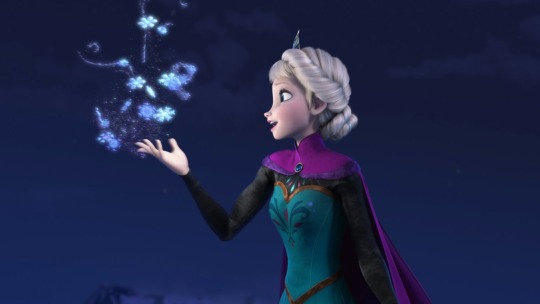
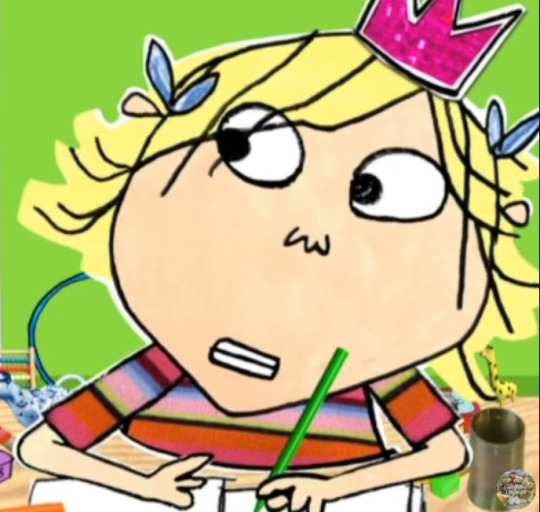
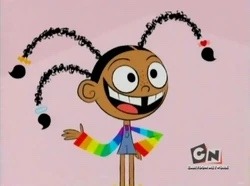
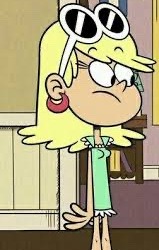
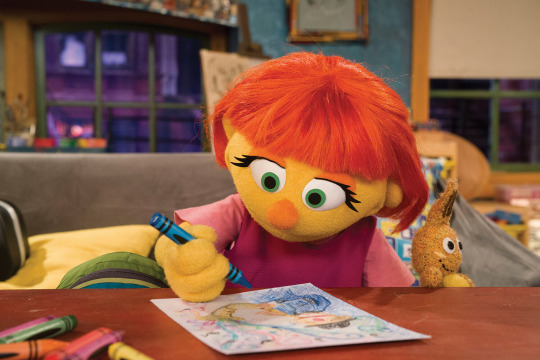
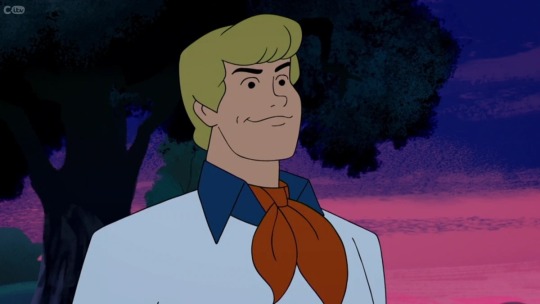
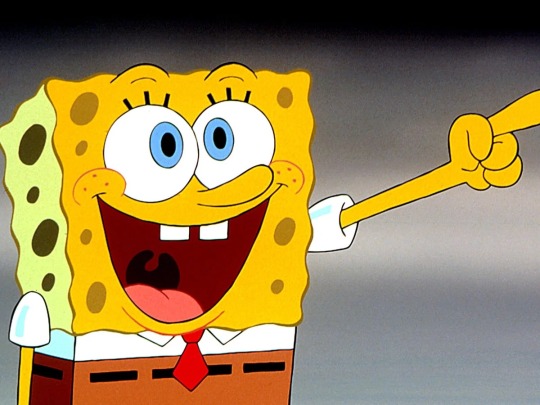
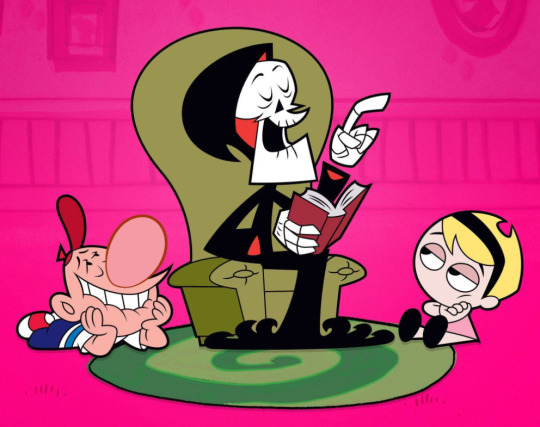
#autism#autism awareness#frozen#queen elsa#elsa frozen#charlie and lola#fosters home for imaginary friends#foster’s home for imaginary friends goo#the loud house#leni loud#sesame street#Sesame Street Julia#scooby doo#fred jones#scooby doo fred#spongebob#spongebon squarepants#the grim adventures of billy and mandy
27 notes
·
View notes
Text


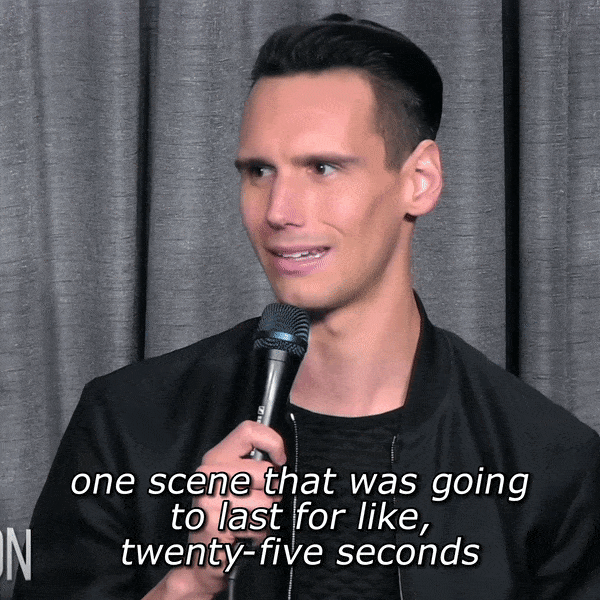


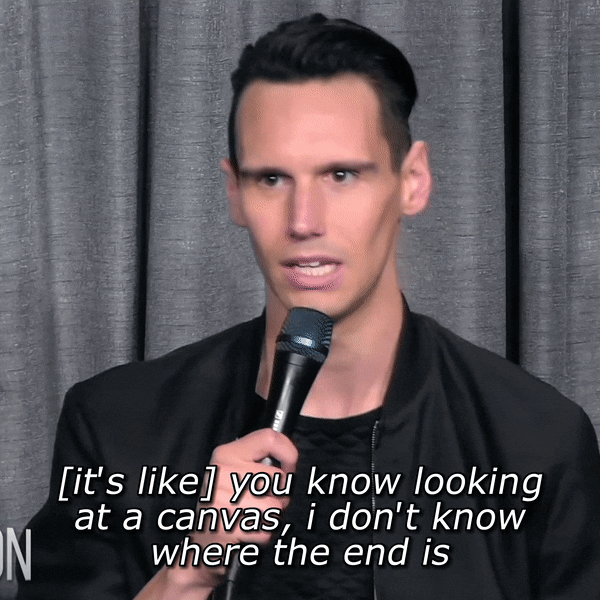
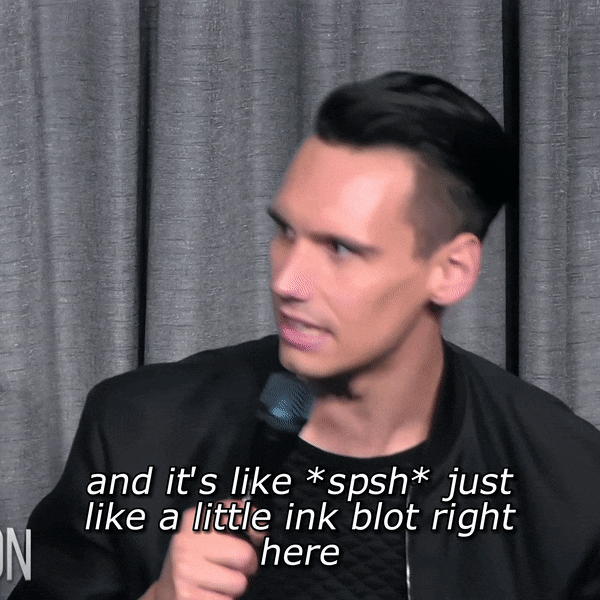
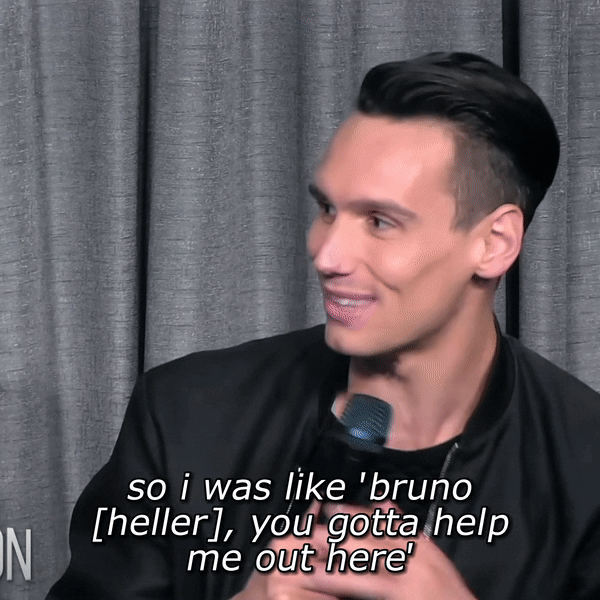
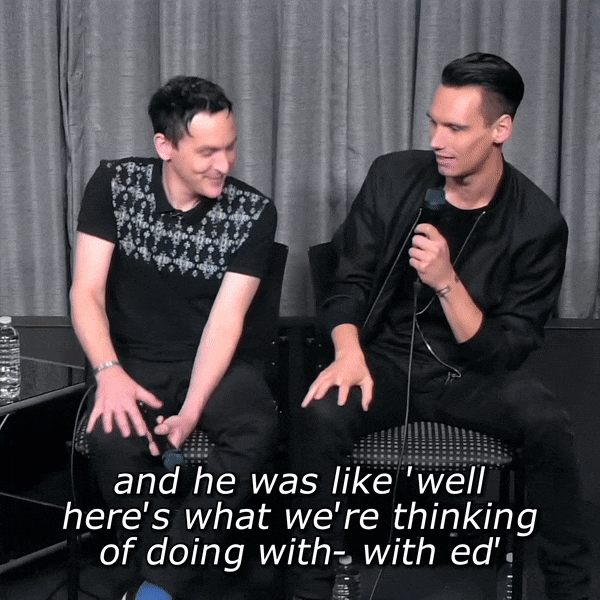




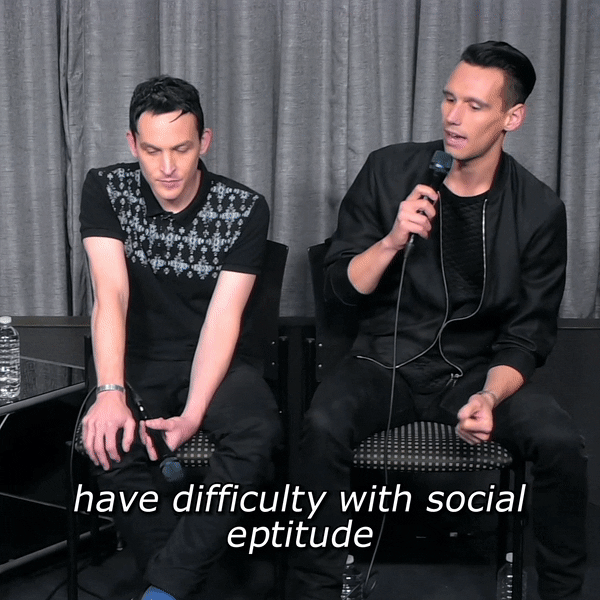
"I knew, I had talked to the creator of the show, Bruno Heller, for a while. Well, actually, it wasn't necessarily a conversation, I was on the phone and I just listened for 15 minutes, and, like, scribbled onto a legal pad every word that he was saying. Because, we didn't have the script ahead of time, and all we had was the first script, and I had like one scene that was gonna last for like 25 seconds, and I'm like 'how the – am I gonna build a character off of this? This is insane.' You know, like, if you have a theatre script or a film script, you know, it's like the entire canvas is in front of you, and you're like 'alright, that's what it looks like, that is the trajectory of this character, and now i get to like fill in everything else' but I'm like, looking at a canvas, I don't know where the end is, and it's like a little ink blot right here, and I was like 'I don't know what to do with this.' So I was like 'Bruno, you gotta help me out here' and he was like 'well here's what we're thinking of doing with Ed' and it was, he talked about, having me look up autism and aspergers and, like, what those qualities are in a human being, and what it's like to have difficulty with social eptitude[sic]"
Cory discussing the physicality of playing Edward Nygma. Conversations with Robin Lord Taylor and Cory Michael Smithof GOTHAM
#gotham#cory michael smith#edward nygma#autistic edward nygma#autistic characters#ed nygma#gotham riddler#the riddler#railroadgifs#gotham tv show#gotham fox#autistic riddler#gotham gifs
296 notes
·
View notes
Text
Venting to @imthepunchlord about the state of the Spy x Family fandom this morning because some VERY worrying posts have been repeatedly showing up in the tags in regards to certain neurodivergent tendencies (seriously, if neurotypicals can STOP implying that there is something unnatural about the way neurodivergent minds work and insisting that therefore those differences have an unnatural source like experimentation or some kind of intentional mental training against the only known esper in the universe? That would be super, thanks.) and obviously, as a neurodivergent person myself they bothered me quite a bit. I started talking about how I hoped that the introduction of Demetrius meant that Endo was going to address the abuse that neurodivergent children in particular suffered in Nazi Germany. So I pulled up the wiki article on Asperger to start giving examples of what I was referring to, and nearly had a heart attack.
Because it turns out that Sigmund Authen being modeled after Einstien is NOT the only historical figure to make it into the spy x family story.

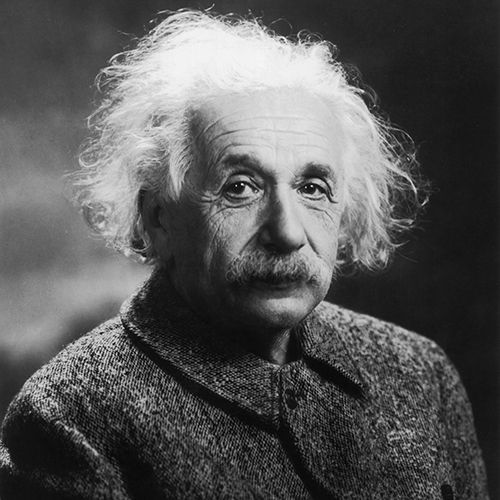
The main scientist who ran the experiments on Anya was ABSOLUTELY modeled after Hans Asperger.
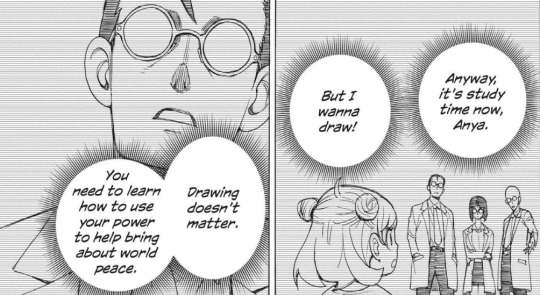

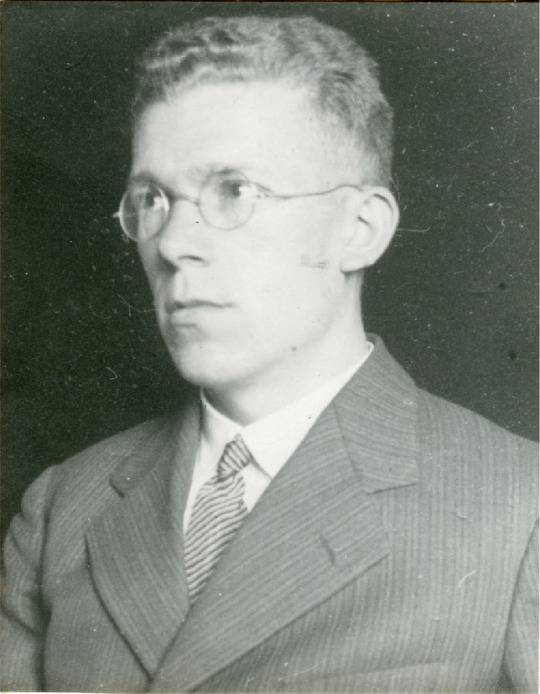
Which is an absolute win for those of us who have mentioned seeing neurodivergent tendencies in Anya!
And before anyone jumps on me about my frustrations at the fandom in the beginning of this post or come at me with the claim that I'm being hypocritical, know that there is a key difference between how Anya is actually written vs how some people in the fandom are choosing to interpret Demetrius;
Anya's powers are not reliant on her neurodivergence.
Anya is a neurodivergent child with a superpower. There are times when she loses her telepathic powers, but all of her neurodivergence remains. And honestly with the revelation that the man responsible for experimenting on her was based on Asperger and what his research was like, I feel that this is NOT a case of Autism is Magic! But rather Anya being chosen for experimentation by virtue of being a neurodivergent child and gaining her telepathy by happenstance.
Meanwhile, the aspect of Demetrius' character that people are jumping on and theorizing about is the fact that he dissassociates in social situations, something that I, a real life autistic person who does NOT have superpowers, was NEVER experimented on, and have NEVER recieved any kind of training against telepathic powers also happen to do regularly.
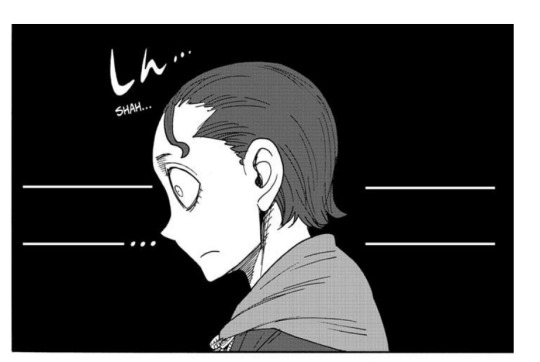
Courtesy of mind.org;
What is dissociation?
Many people may experience dissociation (dissociate) during their life. If you dissociate, you may feel disconnected from yourself and the world around you. For example, you may feel detached from your body or feel as though the world around you is unreal. Remember, everyone’s experience of dissociation is different. Dissociation is one way the mind copes with too much stress, such as during a traumatic event. There are also common, everyday experiences of dissociation that you may have. Examples of this are when you become so absorbed in a book or film that you lose awareness of your surroundings. Or when you drive a familiar route and arrive at your destination without any memory of how you got there. Experiences of dissociation can last for a short time (hours or days) or for much longer (weeks or months). Dissociation may be something that you experience for a short time while something traumatic is happening. But you also may have learned to dissociate as a way of coping with stressful experiences. This may be something that you’ve done since you were young.
#spy x family#anya forger#demetrius desmond#sxf manga spoilers#I return you all to the “Please don't be weird about Neurodivergent People” Challenge
112 notes
·
View notes
Note
Do you think people would react differently to Jeff's of Abed if the show was released in the modern day?
Do you mean Jeff's treatment of Abed? Like the ableist stuff? If so, honestly I'm not entirely sure. I guess the public image of autism has changed somewhat, but a lot of it still just feels like surface acceptance without true understanding. I think probably at least the "you have Asperger's" thing wouldn't fly so easily? But when you get into stuff like season six, there's people who are still arguing that Abed's symptoms are him just being difficult and annoying on purpose or something. Especially when you get into the psychosis as well, that's still incredibly stigmatised and misunderstood. I think what has changed for sure is it's at least easier to find others who understand at least some of the experiences portrayed. And given the changes the team and Dan Harmon specifically had to go through, I wonder if it would be written differently now anyway. I hope the film treats it well in any case.
26 notes
·
View notes
Note
🌻

This is Stumm! Artsy film in cultists simulator. A can of nitrate film labelled STUMM! - 'Silent' or, perhaps, 'Mute'. The director's name, 'Jernik Krosse', is shakily appended. The film rattles through the projector, glows silently on the wall. It is the story of a foolish student of forbidden sciences, who recruits a dancer to entice the Dead back into the world through a flaw in its skin. It's a fiction, but here on a title card is laid out the Operation of the Declining Sun...
The Rite is depicted in chilling detail. Here is the flaw in the world, an Influence shimmering in luminous paint. Here is the dancer establishing an irresistible rhythm. Here the scholar recites the Operation; and now the misty dead whirls through the flaw to consume him! The film closes on the dancer's watchful eyes. Had she intended it all from the start?
Watching this film will grant you the Sunset Rite, a wonderful little thing because it sacrifices influences, like your depression for 2 edge throw in some magic words or a particularly morbid cultists, and convert your depression into summoning the corpse of your loved one back to life imperfectly as in they will last 140 seconds give or take. You can then send them to murder your boss or what have you important thing is the depression was sacrificed and the rite takes other influences which are all temporary making it so much better than the rite where i have to sacrifice people(unless im bored).
Now game play relevance aside how is this film allowing me to turn dread into a zombie army? "The assistant must cry tears of genuine emotion, which are asperged in the place where the influence lies. If all is done well, the Sun-in-Rags will consume the influence, acknowledge an ending, and lend its assistance."
Good ole Sun-In-Rags(it should be noted you can technically do this spell with The Elgiast but thats reading in between the lines and ignore that) depressed good ole bastard that he is with daddy issues. Great for casting the kill random person in the world spell. I get off topic, You invoke the sun-In-Rags with a symbolic ending he consumes the influence magic, but finally getting to the point i was going to make what kind of magic?
Fun Occultists in this game recognize 9 wisdoms (Marketting strategy made up by the Mare in the Woods) that represent the fields of occult knowledge I like to think of them as literary genre's like history, philosphy, how to manuals etc this is only like half wrong. Of the wisdoms that we're interested in are; Hushery. Sorry i wanted to make a fun point talking about Birdsong and like Bosk and how this is all very fun anylyssys of literary genre's. but my topic is so obviously Hushery I'm annoyed i didn't see that tillt his point in the paragraph. Stumm! is Hushery, Hushery is "The Great Art of Hushery understands the beauty of silence, and of its sundering." All of your fun murder spells though because 9-10 your invoking the Sun-In-Rags where going to concede and call them "Endings" (Dadday issues bastard never got over his dad dyding) Given that this is an art film and I did want to talk about how the wisdoms work. Wisdoms are places you can categorize knowledge and every knowledge fits at least two descriptions. Stumm! is so obviously Hushery lets grab the skill,
Sights & Sensations To mix the rarest colours, a merciless detachment is required. Sights & Sensations fits into 2 wisdoms first Hushery, upon which if you do you get this tidbit "The artist knows: their every work could be improved. The artist understands: perfect work can never be completed. Perfection exists only as absence: Hushery understands this." This is what the field of Hushery thinks about this topic, but what of Nyctodromy? Classfying Sights and Sensations as such gives us "The artist knows: their every work could be improved. The artist understands: perfect work exists Nowhere. To go Nowhere - to go below the world - is not an easy journey. But there the artist could achieve their utmost. Nyctodromy is the way to perfection." Which is a somewhat similar conclusion this is knowledge dealing with endings but if you're feeling particularly hubrisic there is a place beyond endings Nowhere such is the domain of Nycodromy, "The nightliest of the Night Arts: travel through the darkness and the hidden places. 'Travelling at night is neither faster nor safer. That's why we do it.' Knowledge of the ways and byways of the transmundane." As I said much earlier obviously the wonderful film Stumm! is Hushery the artistic air around it leans to much into the purview of Hushery. But other readings exist one does wander what happened to the main character of the film and whether he found a place to rest in the Mansus or pehaps transcended in a sense to Nowhere.
17 notes
·
View notes
Text
𝐆𝐨𝐬𝐭𝐥𝐲𝐠𝐡𝐨𝐬𝐭.
!The post is not related to the account topic!

There are no feelings in outer space(I rymden finns inga känslor) - Simple Simon. 🌌
0:30 ━━●─────────── 3:34.
⇆ ◁ ❚❚ ▷
I recently watched this amazing movie, which left me with a storm of positive emotions. A very sensual and interesting film about Simon's boyfriend with Asperger's syndrome. (Actor: Bill Skarsgard.)
If you haven't watched it, be sure to watch it!

31 notes
·
View notes
Text
A New Character for PAW Patrol Movie 3?
Recently, a user on the PAW Patrol Wiki found a link to a website about casting new actors for the upcoming third PAW Patrol movie. In it, they gave some details about a new character; "Dexter".
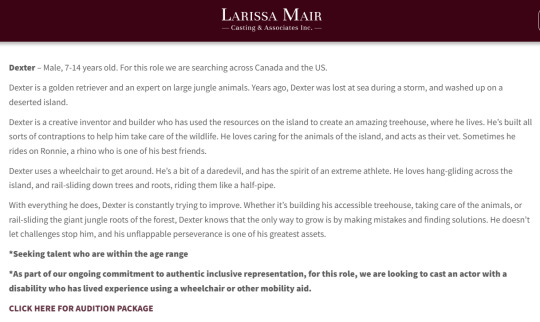
As you can see here, Dexter is described as a golden retriever, wheelchair bound, expert on large jungle animals, good at inventing things with the resources around him, and is prone to make mistakes and treats each one as a new learning experience. He also has a rhino as a "best friend", and the Audition Package included mentions two other characters; "Martin" and... "Watermelon"?
It's important to note that PAW Patrol: The Movie 3 is still very early in its development. All or most of this can, and likely will, change at some point. Then again, some or even all of this might get scrapped at some point, so take all of this with a grain of salt. There's no guarantee any of this will make it to the final product, but if anything, at least it gives us a very brief glimpse of one aspect of the upcoming sequel.
However, there's still no info on which of the main six PAW Patrol pups it'll focus on... or if it'll be one of them? The website's trying to find a voice actor for this Dexter, but it's also trying to find one for Ryder, too. Maybe that's a clue to who they picked after all? Or maybe it means nothing. Who knows, and those that do aren't talking.
Fan reaction to this has been, from what I've noticed, mixed. Chances are, you noticed right away that Dexter sounds like a combination of many characters in PAW Patrol already, such as Rex and Tracker. There's also some aspects of Marshall and Rocky in there, which makes me wonder if that'll affect either of their chances to be the focus of film #3. Plus, while fans have praised the inclusion of more disability representation, some of us (myself, included) are disappointed that they went with one we've already seen. Given the large range of disabilities out there, such as autism, aspergers, deaf, etc., it's a shame they picked one that's already been represented. Given Brunker's penchant for plucking things from the TV series to repurpose them for his movie, I suppose I can't say I'm surprised.
With all this said, the film's still in its early development cycle, so things may change from now until its planned release date. The only other thing to mention is that the page sometimes refers to the movie as "PAW Patrol: The Mighty Movie 3", which some have taken to mean it might be about superpowers again. Chances are, this is just a placeholder, thus it'll absolutely change down the line. At least, I hope so... I'm not too keen on them focusing on superpowers once more, though maybe others might feel differently.
That's all for now. And if anyone wants to check the site out for themselves, here's a link.
#PAW Patrol#PAWPatrol#PAW Patrol The Movie#Paw Patrol The Mighty Movie#Spin Master#Nick Jr#Nickelodeon
24 notes
·
View notes
Text
Wann werden deutsche Filme endlich aufhören Autismus als asperger abzustempeln und uns die most cliché representation geben die ich je gesehen habe
4 notes
·
View notes
Text
situations rpgiques;
vous avez envie de lier votre personnage avec celui de quelqu'un d'autre mais vous n'avez pas d'idée? i gotchu baby ♡♡♡ + ces situations concernent plutôt des personnages qui ne se connaissent pas (encore).
COURRIER; suite à des cafouillages à la poste, X reçoit toujours le courrier de Y à sa place, et même si iel fait l'effort de lui rendre ses lettres, X en ouvre une par mégarde un jour et apprend un secret inattendu sur Y.
FLEURS; à la bourre pour un rencard, X décide de piquer incognito des fleurs dans les allées d'un jardin public, mais Y, qui aime particulièrement ce parc, met X encore plus à la bourre en l'engueulant copieusement et en empêchant X de rejoindre son rendez-vous.
CANAPÉ; l'unique escalier de l'immeuble est bloqué par X, qui pensait pouvoir déménager son énorme canapé sans assistance, si bien qu'Y, en retard et de mauvaise humeur, est dans la contrainte de l'aider à dégager la sortie et se bloque le dos par la même occasion.
CINÉMA; le film qu'X a décidé d'aller voir est particulièrement mauvais et assis·e à quelques places d'iel, Y est très visiblement du même avis: les deux passent leur séance côte à côte à se plaindre de la médiocrité du film si fort qu'iels finissent par se faire jeter de la salle.
CIMETIÈRE; lors d'une visite du joli et historique cimetière local, X se cache pour faire peur à son ami·e mais se trompe et fait peur à Y, si bien qu'iel, dans un moment de panique absolue, asperge copieusement X de bombe au poivre.
TAXI; Y se glisse dans la voiture de X en méprenant le véhicule pour un taxi, mais X a tellement besoin de discuter avec une autre personne qu'iel accepte de conduire Y à sa destination.
SAINT VALENTIN; X a préparé une jolie carte pour son crush mais se trompe et dépose la missive rose chargée en cœurs dans la boîte aux lettres de Y.
MONDANITÉ; à un évènement mondain auquel ni X ni Y n'avaient envie d'assister, les deux décident de partir faire les quatre cents coups.
VOGUE; dans un magasin de vêtements, les choix de X sont tellement désastreux qu'Y se sent obligé·e d'intervenir.
CLUB; X décide de créer un club pour un de ses hobby extrêmement niche et méconnu, et Y est la seule personne à s'y pointer.
SAM; X et Y sont désigné·e·s par leurs groupes d'ami·e·s respectifs comme celleux qui ne boivent pas pour pouvoir les raccompagner en voiture, si bien qu'iels passent la soirée en étant les deux seules personnes sobres au milieu des plus extravagantes festivités.
LABYRINTHE; X et Y se perdent dans le Palais des miroirs de la fête forraine du coin et plutôt que de céder à la panique, décident de s'entraider à se sortir de là.
APPARTEMENT; à cause de la façon dont son appartement est placé, X peut voir par sa fenêtre l'intégralité du domicile de Y, si bien qu'iel est témoin tous les jours de son quotidien – le jour où X s'aperçoit qu'Y n'a pas l'air d'être sorti·e de son lit depuis plusieurs jours, iel décide d'aller voir si tout va bien.
#funfact mais#celui du perso qui pique des fleurs dans le parc au lieu d'en acheter#c'est un truc dont j'ai été témoin irl mdr#encore un truc que je ne sais tagger#je vais juste mettre mes tags persos#rp prompts#blabla
116 notes
·
View notes
Text
Near: You know, I used to think you were like Bill Murray in any of his films, but you're more like Michael Douglas in any of his films.
Mello: yeah, well, you have Asperger's
26 notes
·
View notes
Text
In defense of Kat Eliot

After watching the movie and loving it, I was disappointed to see so many negative reviews of it. Although I agree with some of the critiques, like it being stuffed and cluttered, I was frustrated when people complained about Kat being unlikable and rude when 'everyone is soooo nice to her'. I'm like, did we watch the same movie??
First off, despite living in Africa, I'm a glow-in-the-dark cracker, but I was born with Aspergers, a form of high functioning autism, as well a truckload of mental health problems. I know my experiences of prejudice doesn't even compare to the experiences of POC, I have a family and access to medicine and psychiatric help others do not have, I am blatantly aware that if I was a poor, orphaned person of color I'd be in the same system as Kat and I am lucky I'm not. But my whole life I have been belittled and villainized by the school system. I was chewed up and spat out, and my point is that I AM ANGRY. And I have every right to be. I have an extreme distrust of authority figures and have little interest in making friends aside from online. Needless to say I have trust issues. Bottom line: I experienced prejudice and am pissed about it.
My suffering is completely different from Kat's but the end result is the same: I came out fuming.
Despite it not being her fault, she is left with extreme guilt as well as survivor's guilt and PTSD from her parent's death. What I love about this movie is that it explores not only the prejudice racial and queer minorities have to experience, but those with mental health issues as well. People say "Ooh, just because she experienced a tragic event doesn't mean she has to be ruuude." Kat didn't just experience a traumatic event, she was put in the worst place for a person with mental health issues, first in a shitty foster home, then in a school with bullies, then in jail. How did you expect her to act?
Even though she was angry, she was never cruel. There is a big difference between angry and cruel. She never tormented or bullied anyone out of enjoyment, and the only type of violent behavior she showed was when she was being defensive. I surprisingly tend to hate characters who use their hurt as an excuse to hurt others, but Kat isn't like that. Everything she does is defensive. She is used to being treated horribly.
Kat didn't experience just one trauma, but several. Upon arriving at a new school, she was tormented and bullied. I have heard way too many stories about children being bullied, the bullies not getting punished, then when the bullied kid strikes back, they get punished. Kat looked barely older than she was at the start of the film, but someone thought she was old enough to be PUT IN A CAGE. A traumatized orphan girl was put in a cage among juveniles who have already offended multiple times. She'd had to fight to survive and that only got her into more trouble.
One thing I picked up on, Kat's family HAD MONEY, her father owned this massive brewery and her brother draws attention to her box full of money for her library. I wholeheartedly believe her having that box was a Chekhov's gun moment. They weren't millionaires but were pretty well off. After their death, their money would have been put in a trust and someone would be appointed the administrator of that trust. In her flashback of her time at a foster home, we see an old crone with doller sighs for eyes, then later we see Father Bests eagerly accepting Kat (and her full tuition) into his school. This child has been treated like a walking money bag by adults her entire life. They take money that is rightfully hers and instead of spending it on her they use it for themselves.
LET. HER. BE. ANGRY!
115 notes
·
View notes